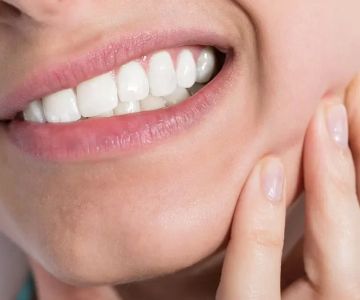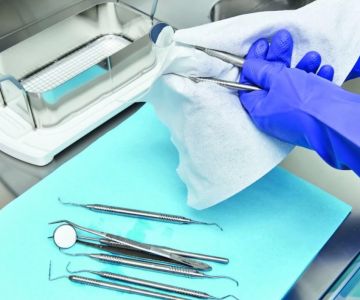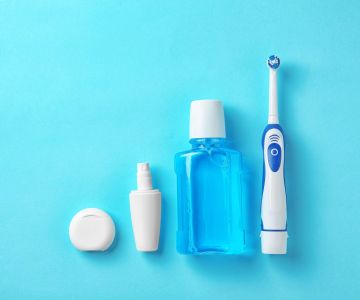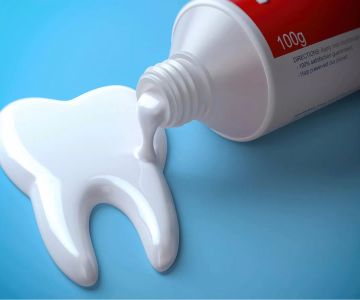How to Prevent Gum Bleeding Effectively
Gum bleeding is a common issue that affects millions of people worldwide. In the United States alone, the Centers for Disease Control and Prevention (CDC) report that nearly half of adults aged 30 and older have some form of gum disease. Gum bleeding, often a symptom of gum disease, can range from slight discomfort to more severe bleeding that can indicate an underlying health problem. If you’re noticing blood when brushing or flossing, it’s essential to take action quickly. Gum disease, which causes bleeding gums, is one of the most preventable dental conditions. By understanding how to effectively prevent gum bleeding, you can protect your oral health and avoid more serious dental issues in the future.
The causes of gum bleeding are varied and include poor oral hygiene, hormonal changes, certain medications, or even underlying systemic conditions such as diabetes. Fortunately, preventing gum bleeding is not only possible, but it's also straightforward with the right habits and practices. This article explores how to prevent gum bleeding effectively, highlighting both the daily practices you can adopt and lifestyle changes that can help reduce inflammation and improve gum health.
1. Brush and Floss Regularly and Correctly
The foundation of preventing gum bleeding starts with good oral hygiene. Brushing your teeth twice a day and flossing once a day are essential habits that prevent plaque buildup, a leading cause of gum disease. Plaque is a sticky film of bacteria that can irritate your gums and cause them to bleed. When plaque isn’t removed, it hardens into tartar, which can only be removed by a professional cleaning. Tartar buildup can lead to gum disease and, ultimately, gum bleeding.
Using a soft-bristled toothbrush and brushing at a 45-degree angle to your gums is crucial. Hard brushing or using a stiff brush can damage your gums, making them more susceptible to bleeding. Make sure to spend at least two minutes brushing, ensuring that all areas of your teeth and gums are thoroughly cleaned.
When it comes to flossing, many people avoid it due to discomfort or bleeding. However, it’s important to note that initial gum bleeding from flossing may occur as your gums get used to the practice. Flossing removes food particles and plaque from between your teeth, where your toothbrush can’t reach. Over time, as your gums become healthier, the bleeding should subside. Be gentle when flossing to avoid injuring your gums.
2. Use an Antibacterial Mouthwash
In addition to brushing and flossing, using an antibacterial mouthwash can help prevent gum bleeding by reducing plaque and bacteria that irritate the gums. Mouthwash can reach areas in your mouth that brushing and flossing might miss, providing an added layer of protection against gum disease.
Many over-the-counter mouthwashes contain ingredients like chlorhexidine, which helps kill harmful bacteria and prevents the formation of plaque. The American Dental Association recommends mouthwash as a supplementary measure, not a replacement for brushing and flossing. Choose a mouthwash that is alcohol-free, as alcohol can dry out your mouth and make your gums more susceptible to irritation and bleeding.
If you're prone to gum disease, consider using a mouthwash with fluoride or one specifically designed to target gum health. Regular use of mouthwash in conjunction with proper brushing and flossing can significantly reduce your risk of gum bleeding.
3. Maintain a Healthy Diet
Your diet has a significant impact on your gum health. Consuming a balanced diet that is rich in vitamins and minerals can help reduce inflammation and promote gum healing. Vitamin C, in particular, is crucial for gum health. A deficiency in vitamin C can lead to a condition called scurvy, which causes severe gum bleeding and swelling. Fortunately, this is preventable by consuming fruits and vegetables like oranges, strawberries, and leafy greens.
In addition to vitamin C, calcium is essential for strong teeth and bones, while vitamin D helps your body absorb calcium. Consuming dairy products, nuts, seeds, and fish can provide you with these essential nutrients.
On the other hand, a diet high in sugar and acidic foods can contribute to gum disease by promoting bacterial growth in your mouth. Sugary foods fuel harmful bacteria that produce acids, which can erode tooth enamel and cause gum inflammation. To prevent gum bleeding, it’s essential to avoid sugary snacks, sodas, and other acidic foods. Drink plenty of water to rinse away food particles and keep your mouth hydrated.
4. Avoid Smoking and Tobacco Products
Smoking and chewing tobacco are two of the most significant risk factors for gum disease, which can lead to gum bleeding. Tobacco use weakens your immune system, making it more difficult for your body to fight off infections, including those that affect your gums. Smoking also decreases blood flow to your gums, which can delay healing and increase the risk of gum disease.
In fact, smokers are twice as likely to develop gum disease as non-smokers. If you’re concerned about gum bleeding and gum health, quitting smoking is one of the most important steps you can take. Not only will it improve your oral health, but it will also benefit your overall well-being.
If you’re struggling to quit smoking, consider seeking help from a healthcare provider or a smoking cessation program. Reducing or eliminating tobacco use will help you maintain healthy gums and prevent further bleeding.
5. Manage Stress Effectively
Did you know that stress can contribute to gum bleeding? Stress can weaken your immune system, making your gums more vulnerable to infections and inflammation. It can also cause you to grind your teeth (bruxism), which can damage your gums and lead to bleeding. In some cases, stress can even result in unhealthy behaviors, such as smoking or eating unhealthy foods, that further contribute to gum disease.
Managing stress effectively can, therefore, have a positive impact on your gum health. Consider incorporating relaxation techniques such as meditation, yoga, or deep-breathing exercises into your routine to reduce stress levels. Regular physical activity can also help manage stress while improving your overall health.
If you find that stress is affecting your oral health, it may be worth discussing your concerns with a healthcare professional who can help you develop strategies for better stress management and overall wellness.
6. Regular Dental Checkups and Professional Cleanings
Preventing gum bleeding also involves maintaining regular dental checkups. Your dentist or hygienist can detect early signs of gum disease and provide professional cleanings to remove plaque and tartar buildup. This is particularly important because tartar cannot be removed through regular brushing and flossing and can lead to gum bleeding if not addressed.
In the United States, the American Dental Association recommends that adults visit the dentist at least once every six months for a routine checkup and cleaning. If you have a history of gum disease or are at higher risk, you may need more frequent visits. During these appointments, your dentist will check for signs of gum disease, such as swelling, redness, or bleeding, and can provide treatment to prevent the condition from progressing.
By maintaining these professional visits, you can ensure that any potential gum issues are caught early, reducing the risk of severe gum disease and bleeding in the future.
Conclusion: Take Action to Prevent Gum Bleeding
Gum bleeding is a common but preventable issue that affects millions of people. The key to stopping gum bleeding is to adopt a comprehensive approach to oral care, including proper brushing and flossing, using mouthwash, maintaining a healthy diet, and avoiding tobacco. Managing stress and maintaining regular dental checkups also play essential roles in preventing gum disease and bleeding.
If you’re experiencing gum bleeding, it’s essential to act quickly to prevent further complications. Regular dental visits and early intervention can make a significant difference in your gum health. Remember, preventing gum bleeding is not just about treating the symptoms; it’s about adopting healthy habits that keep your gums strong and healthy for life.
For more expert tips on maintaining good oral health and preventing gum bleeding, visit Dentistry Toothtruth. Take control of your oral health today, and your gums will thank you.







 Dr. Nathan Hammond4.0 (346 review)
Dr. Nathan Hammond4.0 (346 review) All Smiles Dentistry - Shabnam Nejati, DDS5.0 (89 review)
All Smiles Dentistry - Shabnam Nejati, DDS5.0 (89 review) Sunnyvale Pediatric Dentistry and Orthodontics4.0 (365 review)
Sunnyvale Pediatric Dentistry and Orthodontics4.0 (365 review) South Mississippi Smiles - Gulfport4.0 (454 review)
South Mississippi Smiles - Gulfport4.0 (454 review) Decatur Orthodontics5.0 (379 review)
Decatur Orthodontics5.0 (379 review) Chatsworth Family Dental Group4.0 (366 review)
Chatsworth Family Dental Group4.0 (366 review) The Importance of Oral Health Education During Pregnancy for a Healthy Pregnancy
The Importance of Oral Health Education During Pregnancy for a Healthy Pregnancy Best Tips for Brushing Your Teeth Properly for Healthy Gums: Essential Techniques for Oral Health
Best Tips for Brushing Your Teeth Properly for Healthy Gums: Essential Techniques for Oral Health Why Skipping Dental Checkups Can Lead to Bigger Oral Health Problems
Why Skipping Dental Checkups Can Lead to Bigger Oral Health Problems Advantages of Porcelain Dental Restorations
Advantages of Porcelain Dental Restorations How Can Diabetes Cause Tooth and Gum Problems? Preventing and Managing Oral Health Issues
How Can Diabetes Cause Tooth and Gum Problems? Preventing and Managing Oral Health Issues Healthy Habits for Promoting Good Oral Health and Hygiene: Tips for a Healthy Smile
Healthy Habits for Promoting Good Oral Health and Hygiene: Tips for a Healthy Smile